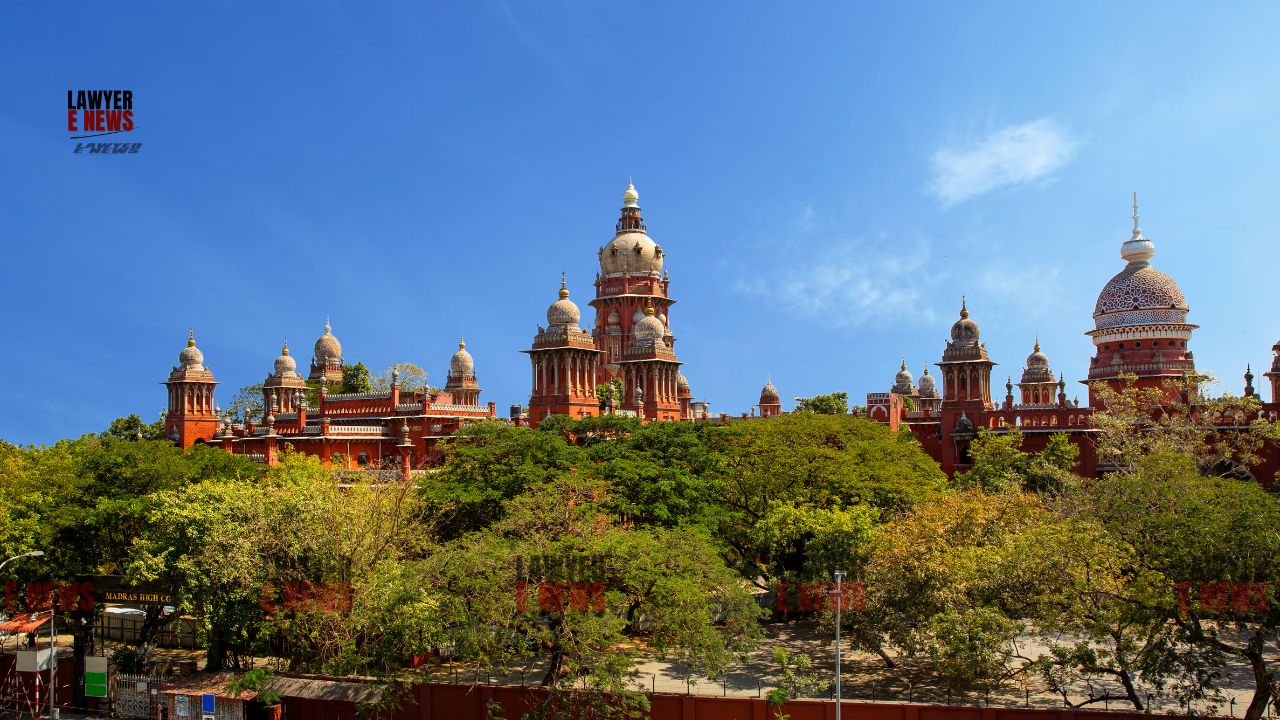-
by Admin
15 February 2026 5:01 PM



Cancellation of 14-year-old appointment deemed unjust; petitioner to be reinstated with back wages and continuous service . The Madras High Court has ordered the reinstatement of R. Sasikumar, a jeep driver whose appointment was canceled after 14 years of service due to alleged violations of communal reservation guidelines. The court, presided over by Justice R.N. Manjula, underscored the government’s vicarious liability for errors made by its officials and deemed the cancellation of Sasikumar’s appointment as unjustified, ordering his immediate reinstatement with all attendant benefits.
R. Sasikumar was appointed as a jeep driver in the Panchayat Union of Krishnarayapuram, Karur District, through the Employment Exchange. After 14 years of service, his appointment was canceled on May 31, 2024, on the grounds that it violated communal reservation rules, specifically that the position was reserved for Scheduled Castes (Arunthathiyars on Preferential Basis). The petitioner challenged this decision, arguing that he was unaware of any reservation violations and that the fault lay with the authorities responsible for the appointment process.
The court criticized the respondents for attempting to rectify their administrative oversight by penalizing the petitioner. Justice R.N. Manjula observed, “The government, being the model employer, cannot adopt such atrocious practices of canceling the appointment of a person after fourteen long years for the fault of its own officer involved in the recruitment.”
The court highlighted the government’s vicarious liability, stating, “For the error on the part of the Appointing Authority in not following the guidelines of communal rotation, the petitioner cannot be penalized or made a scapegoat. The government has a responsibility to compensate for the mistakes of its employees.”
Addressing the respondents’ claim that the petitioner’s appointment was temporary, the court noted that the petitioner had been kept under the Contributory Pension Scheme (CPS), indicating a regular appointment. The judgment stated, “If the vacancy was not a regular one, there would be no necessity to follow communal reservation in such an appointment.”
The court reasoned that canceling the appointment after 14 years was neither just nor equitable. “The petitioner has not suppressed any material facts to secure his appointment. Terminating his service for the error committed by the authorities is unjustifiable,” the court stated.
Justice Manjula emphasized, “Even if viewed from the perspective of vicarious liability, the petitioner, who would lose his services due to the mistake of his superior, would be entitled to claim his monetary benefits attached to his loss of service as compensation.”
The Madras High Court’s decision to reinstate R. Sasikumar with all attendant benefits, including back wages, reinforces the judiciary’s stance on protecting employees from unjust administrative actions. This ruling is expected to have a significant impact on similar cases, underscoring the importance of government accountability and the fair treatment of employees.
Date of Decision: 13th June 2024
R. Sasikumar VS The State of Tamil Nadu
